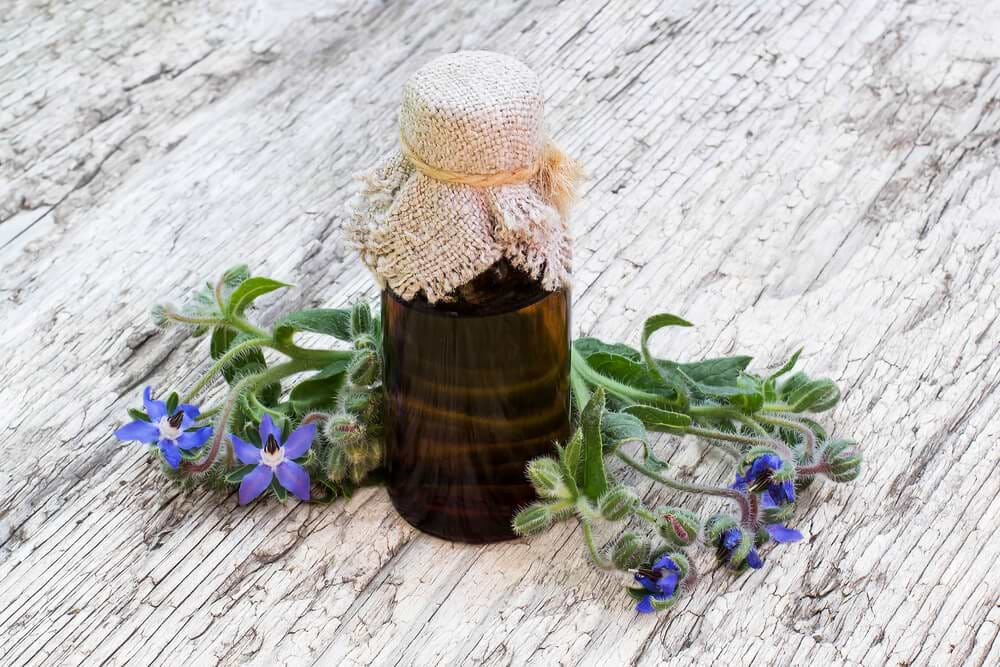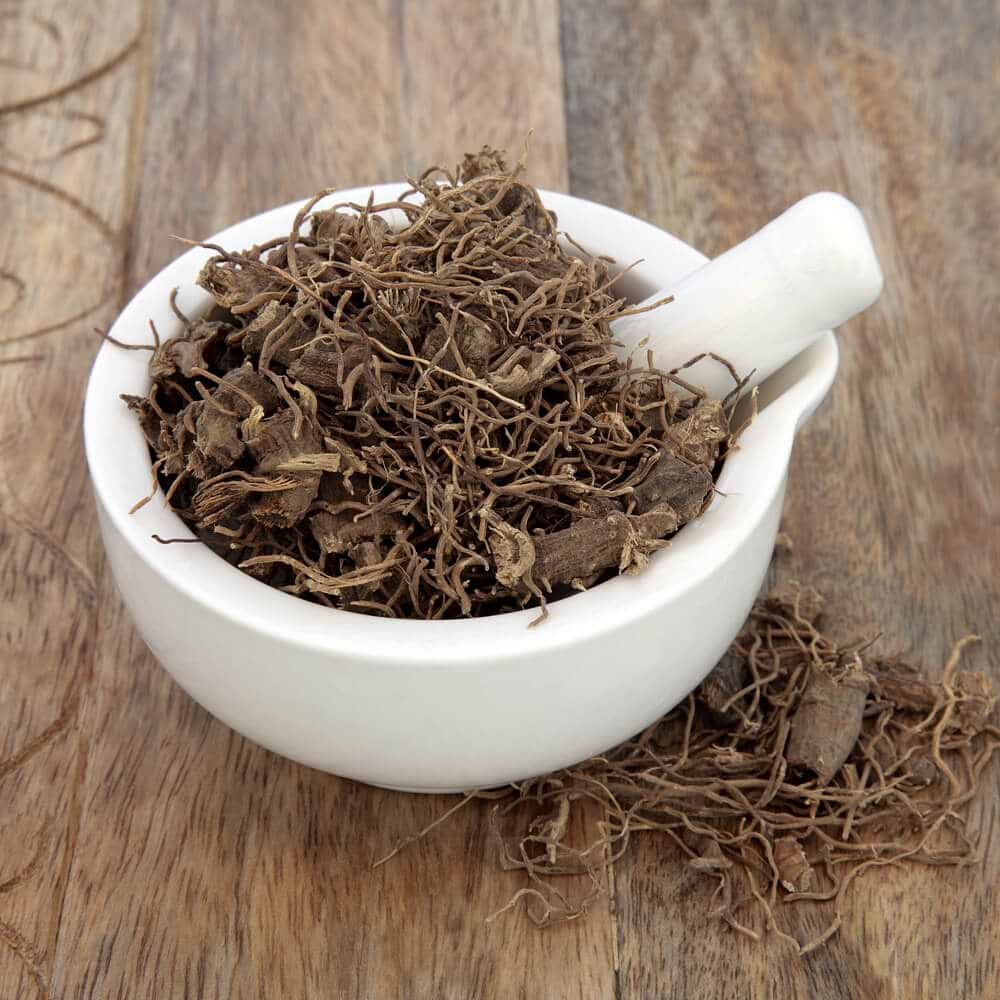Ever felt like your body's pulling some kind of hormonal prank on you? We've totally been there. Let us introduce you to black cohosh (Cimicifuga racemosa)—the herbal ally that's got your back when your hormones decide to go rogue. Trusted for centuries to smooth out symptoms from menopause to PMS, black cohosh is like the queen of hormonal harmony. It's all about restoring balance—naturally.
"Black cohosh is one of nature's true allies for women navigating the complexities of hormonal transitions. Its ability to ease hot flashes and mood swings makes it an invaluable herb for both traditional and modern wellness." — Catherine Hunziker, Founder of WishGarden Herbs and Master Herbalist
Native Americans were onto something with this herb way before "hot flashes" were even a thing. Think of black cohosh as that friend who always knows exactly what to say when life gets overwhelming. And if your hormonal ride is feeling like an unpredictable roller coaster lately, let's talk about how this plant superhero can help bring some well-deserved calm.
Just a quick heads-up: black cohosh isn't the same as blue cohosh—they have quite different effects on the body.
What is Black Cohosh?
Black cohosh (Actaea racemosa or Cimicifuga racemosa) is a perennial herb that calls the cool, shaded woodlands of Eastern North America its home. Part of the buttercup family, this plant has been a beloved staple in traditional Native American medicine for generations. It goes by a bunch of cool nicknames—black bugbane, black snakeroot, baneberry, or bug root—but it's the root of the plant that holds all that herbal magic.
Today, black cohosh has found its way into many wellness routines as a dietary supplement, especially for those trying to steer through the choppy waters of perimenopause and menopause. Whether you're fighting off hot flashes or just looking for a natural way to get your hormones in sync, black cohosh might just be the sweet relief you've been searching for.
Botanical Background
Black cohosh (Actaea racemosa, formerly known as Cimicifuga racemosa) is part of the Ranunculaceae family—otherwise known as the buttercup family. Don't let the delicate flowers fool you; this plant is a powerhouse. With its long, sturdy stalks topped with feathery white flowers, black cohosh would look right at home in a magical woodland scene. Standing tall sometimes up to eight feet, this herb makes quite an impression—both in the forest and as a healing remedy.
Native to the rich woodlands of North America, especially in the eastern United States, black cohosh thrives in those cool, shady spots where the soil stays moist and full of life. These conditions allow black cohosh to grow and pack its roots full of potent, medicinal goodness.
Historical Use and Cultural Significance
Before it joined the ranks of modern herbal remedies, black cohosh already had a legendary reputation among Native American tribes. They affectionately called it "squaw root" because of its powerful benefits for women's health. It was the go-to for easing menstrual discomfort, aiding in childbirth, and even helping with joint discomfort. The herb worked so well that it caught the attention of early European settlers, who quickly incorporated the use of black cohosh into their own healing practices.
Fast forward to the 19th century, and black cohosh became a key ingredient in Lydia Pinkham's Vegetable Compound—a hugely popular women's remedy of the time. Even when science and folklore were constantly at odds, black cohosh was a trusted ally for women's health. However, a little caution: this herb isn't recommended for pregnant women due to the risk of stimulating contractions, which could lead to early labor. Similarly, breastfeeding women should steer clear or use it only under strict medical guidance. It's a powerful herb, but with great power comes great responsibility, right?
Hormonal Balance, Hot Flashes, and Menopausal Relief
Let's talk about hot flashes—making it feel like your body's internal thermostat went haywire. Black cohosh has earned a name for helping with these pesky symptoms. Studies suggest that it modulates serotonin receptors, which play a role in body temperature regulation. Translation? It can help keep you cool and collected instead of leaving you at the mercy of your hormones.
But the goodness doesn't stop there. Black cohosh is also believed to help with other menopausal symptoms like night sweats, mood swings, and even vaginal dryness. By potentially helping balance those fluctuating hormones, black cohosh might be your ticket to more restful nights and less moodiness. Its calming influence may also assist with the emotional roller coaster of menopause by positively affecting neurotransmitters, leaving you feeling more balanced and in control.
And it's not just about menopause—black cohosh can also be a lifesaver during PMS. If cramps, bloating, and irritability bring you down, this herb's gentle touch might offer relief. Black cohosh's ability to ease muscle tension and modulate hormone levels could make those premenstrual days feel less like an uphill battle. Consulting a healthcare provider is always key, especially if you're considering adding black cohosh to your routine. Safety first, always.
Easing PMS Discomforts
PMS, or Premenstrual Syndrome, is that mix of emotional, physical, and mental symptoms that can make the days leading up to your period feel like a real challenge. The exact cause of PMS isn't fully understood, but it's closely tied to those hormonal changes that happen during your cycle. This is where black cohosh shines—it steps in to help bring some harmony to all that hormonal chaos.
The magic lies in the effects of black cohosh's compounds, which can mimic the affect of estrogen, the hormone that plays a huge role in the menstrual cycle. This estrogenic action is thought to help with common PMS symptoms like cramps, breast tenderness, and mood swings. Black cohosh is like a stabilizing friend, helping keep your hormonal environment a bit more balanced and less like an unpredictable roller coaster ride.
There are properties in black cohosh that help calm the inflammatory response which is a significant bonus. They can help tackle some of the physical symptoms of PMS—think lower back aches and tension in the head. And then there's its effect on neurotransmitters like serotonin, which means less irritability and better moods overall. It's all about making those premenstrual days a little more manageable.
Bone Health Support for Postmenopausal Women
Menopause doesn't just bring hot flashes; it also can mess with your bones. As estrogen levels drop, bones tend to weaken, becoming more prone to bone related issues. This is where black cohosh can lend a supportive hand. It's been linked to positive effects on bone density thanks to its estrogen-like activity, essential for keeping bones strong and sturdy.
Recent research suggests that black cohosh may work similarly to estrogen by interacting with estrogen receptors, helping to support healthy bone density while encouraging bone maintenance. Now, it's not a substitute for conventional treatments, but it could be a complementary ally for postmenopausal women aiming to preserve bone health. But remember, it's not a magic pill—diet, exercise, and other nutrients are part of the mix. Black cohosh supplements should be used alongside good sources of calcium and vitamin D and weight-bearing exercises to build a strong, holistic bone health strategy.
Always talk with your healthcare provider before adding black cohosh to other dietary supplements in your regimen, especially for bone health. While the early research is promising, ongoing studies are still investigating how it works. A healthcare professional's guidance ensures that any natural remedy, like black cohosh, is used safely and effectively as part of your overall wellness approach.
Mental Health and Sleep Improvement
Menopause is a lot to handle, not just for the body but for the mind, too. Black cohosh might offer a helping hand, particularly for those grappling with menopausal mood swings. While a review of studies showed that it didn't have a significant impact occasional anxiousness specifically, black cohosh did show potential in improving overall psychological well-being, which is a big win.
Let's not forget about sleep either. Issues sleeping can feel like an unavoidable part of menopause, but black cohosh might help. A 2015 study with 42 menopausal women found that taking black cohosh improved both sleep duration and quality. Another study suggested that combining black cohosh with other herbal compounds could help alleviate hot flashes tied to restlessness—making it a multitasking herbal ally when it comes to getting a better night's sleep.
By making black cohosh part of your wellness routine, you might enjoy more restful nights and a calmer mind, especially during those challenging hormonal transitions.
Inflammatory Response Support
Black cohosh's affinity for the inflammatory response make it an excellent choice for anyone seeking natural relief from muscle aches and occasional joint pains. It contains active compounds like triterpene glycosides and salicylic acid derivatives, which help soothe an overactive inflammatory response and alleviate discomfort—offering a more natural alternative to standard over-the-counter options.
For chronic joint discomfort, black cohosh can help soothe stiffness and discomfort. But you don't need to have a chronic condition to benefit—if you're feeling sore after a tough workout or dealing with menstrual cramps, black cohosh's muscle-relaxing properties can provide that sweet relief.
Black cohosh's ability to modulate the body's inflammatory response makes it a go-to remedy for tension and an achy body. While science continues to explore exactly how black cohosh achieves these soothing effects, many people already swear by it for improving their quality of life.
How to Use Black Cohosh
Black cohosh has stood the test of time as a traditional herbal remedy, offering various potential health benefits—from soothing menopausal symptoms to supporting bone and inflammatory health. Here are some popular ways to make black cohosh part of your wellness routine:
- Tinctures: If you're all about quick and effective, tinctures are the way to go. WishGarden's tinctures are simple—just add them in water, juice, or tea, or be bold and take them straight up. Tinctures are all about ease and rapid absorption, delivering those herbal goodies right where you need them with no mess or hassle.
- Teas: Black cohosh tea is your jam if you love the hands-on, earthy experience of brewing herbs. Made by steeping dried black cohosh root in boiling water, it has a distinct earthy flavor—like sipping on a forest's essence. If the bitterness isn't quite your thing, just add a dollop of honey or a squeeze of lemon to brighten it up. It's herbal comfort in a cup.
- Capsules: Capsules are perfect for those with allergies or sensitives to solvents that make up tinctures, but also for the non tea drinkers. Capsules also provide convenient and consistent dosing.
No matter how you choose to use black cohosh, consult with your healthcare provider first. Herbal remedies are powerful, and guidance ensures you use them safely and effectively, complementing your broader wellness strategy.
Synergistic Herb Combinations
Like the best of friendships, some herbs work better when together, enhancing each other's effects in beautiful synergy. Black cohosh has a few herbal partners that make a pretty solid team:
- Dong Quai: Often called the "female ginseng," dong quai is a classic companion for black cohosh. Together, they amplify each other's hormone-balancing effects, making them a power duo supporting menstrual and menopausal health.
- Chasteberry (Vitex): When PMS hits hard, black cohosh and chasteberry are a winning combination. Chasteberry helps regulate hormones, while black cohosh eases symptoms like mood swings and breast tenderness, giving you a full-spectrum approach to managing those tough days.
- St. John's Wort: Menopause can sometimes bring a bit of a cloud over your mood. Pairing black cohosh with St. John's wort can naturally lift your spirits, especially when combined in thoughtful, balanced formulas. Together, they offer a gentle boost to keep you feeling more like yourself.
Safety, Precautions, and Clinical Trials
As much as we love black cohosh, some important safety considerations must be remembered. Pregnant or breastfeeding? This herb isn't for you, as it may stimulate uterine contractions, which could lead to early labor. While it's often used to help with postmenopausal symptoms, it should be approached cautiously for those with a complicated medical history if those taking prescribed medications.
Generally speaking, black cohosh is well-tolerated, but some people might experience mild side effects like gastrointestinal discomfort or headaches. And while we're all about natural remedies, we also firmly believe in making informed decisions—so be sure to talk to your healthcare provider before adding black cohosh extract any new herb into your life. Safety first
[[ recipeID=recipe-2m23k5v8y, title=Black Cohosh Comfort Tea ]]
Q&A - Everything You Need to Know About Cohosh
Q: What are the benefits of taking cohosh?
A: Black cohosh is beneficial primarily for women seeking hormonal balance—it helps with menopausal symptoms like hot flashes, night sweats, mood swings, and even bone density. It also offers support for PMS symptoms by balancing hormone fluctuations. Blue cohosh, in contrast, is traditionally used for its uterine-stimulating properties but requires more caution due to safety concerns.
Q: What is black cohosh, and how does it help with relieving menopausal symptoms?
A: Black cohosh (Actaea racemosa), a perennial herb native to North America, is renowned for alleviating menopausal symptoms like hot flashes, night sweats, and mood swings. It interacts with serotonin receptors, helping regulate body temperature and emotional balance, making it a trusted natural ally during menopause.
Q: What is the difference between blue and black cohosh?
A: Black cohosh and blue cohosh (Caulophyllum thalictroides) are often confused because of their similar names, but they serve very different purposes. Black cohosh is primarily used for menopausal and hormonal support, while midwives have traditionally used blue cohosh to stimulate labor or address menstrual issues. Importantly, blue cohosh has more potential risks and should be used only under professional supervision.
Q: What is blue cohosh used for, and is it safe for labor related issues?
A: Blue cohosh is traditionally used to induce labor or ease childbirth. However, its safety is controversial due to its potent effects, and using it without medical supervision can be risky. It may stimulate uterine contractions, which could lead to complications. Therefore, blue cohosh is not recommended for casual or unmonitored use during pregnancy.
Q: How soon can I expect results from using black cohosh?
A: Many people notice improvements in their menopausal symptoms within two to four weeks of consistent use of herbal supplements. However, everyone's body is different—herbs work best when given time, so patience is key.
Embracing Natural Health with Black Cohosh
Black cohosh isn't just a traditional remedy; it's a holistic approach to wellness that respects the body's natural rhythms and needs. When life's changes—especially those hormone-driven ones—start feeling like too much, black cohosh is here as a gentle companion. Its ability to help with menopause symptoms like hot flashes, night sweats, and mood swings, while also supporting bone health, makes it a versatile ally. It encourages you to tune in and listen to your body, promoting natural balance and well-being.
Everyone's path to hormonal harmony is different, but with black cohosh by your side, you can confidently step forward, empowered by nature's wisdom. Whether you're navigating the symptoms of menopause, seeking help with menstrual health, or simply looking for a little more balance in your life, black cohosh offers gentle, effective support. Embrace the journey, knowing that you're nurturing both body and spirit by turning to nature.
Rebecca Younger is passionate about herbs and women's health. She aspires to plant seeds of inspiration within her community about plant medicine and healthier ways of life. She studied Herbal Medicine at Herbalism Roots in Denver and is a certified Doula through the Matrona Foundation. She is the Brand Communications Specialist at WishGarden Herbs.
For educational purposes only. This information has not been evaluated by the Food and Drug Administration. This information is not intended to diagnose, treat, cure, or prevent any disease, or to sell any product.
Recommended Products
Further Reading
















